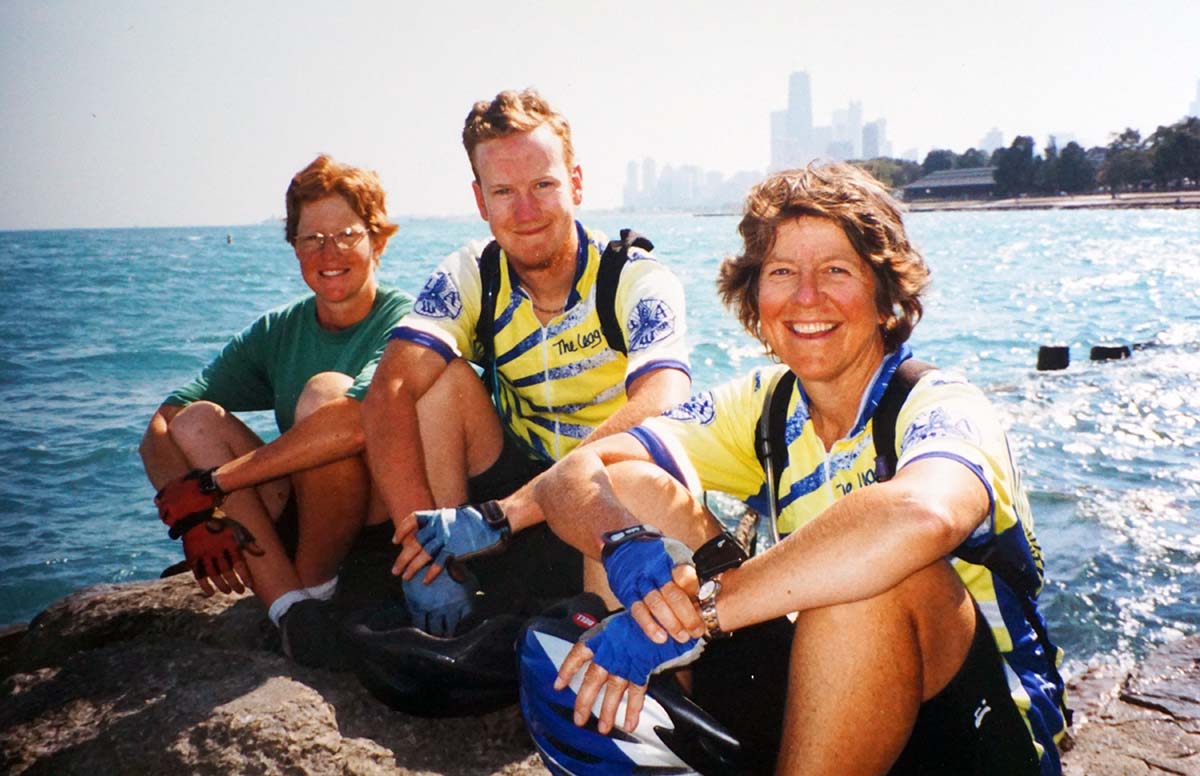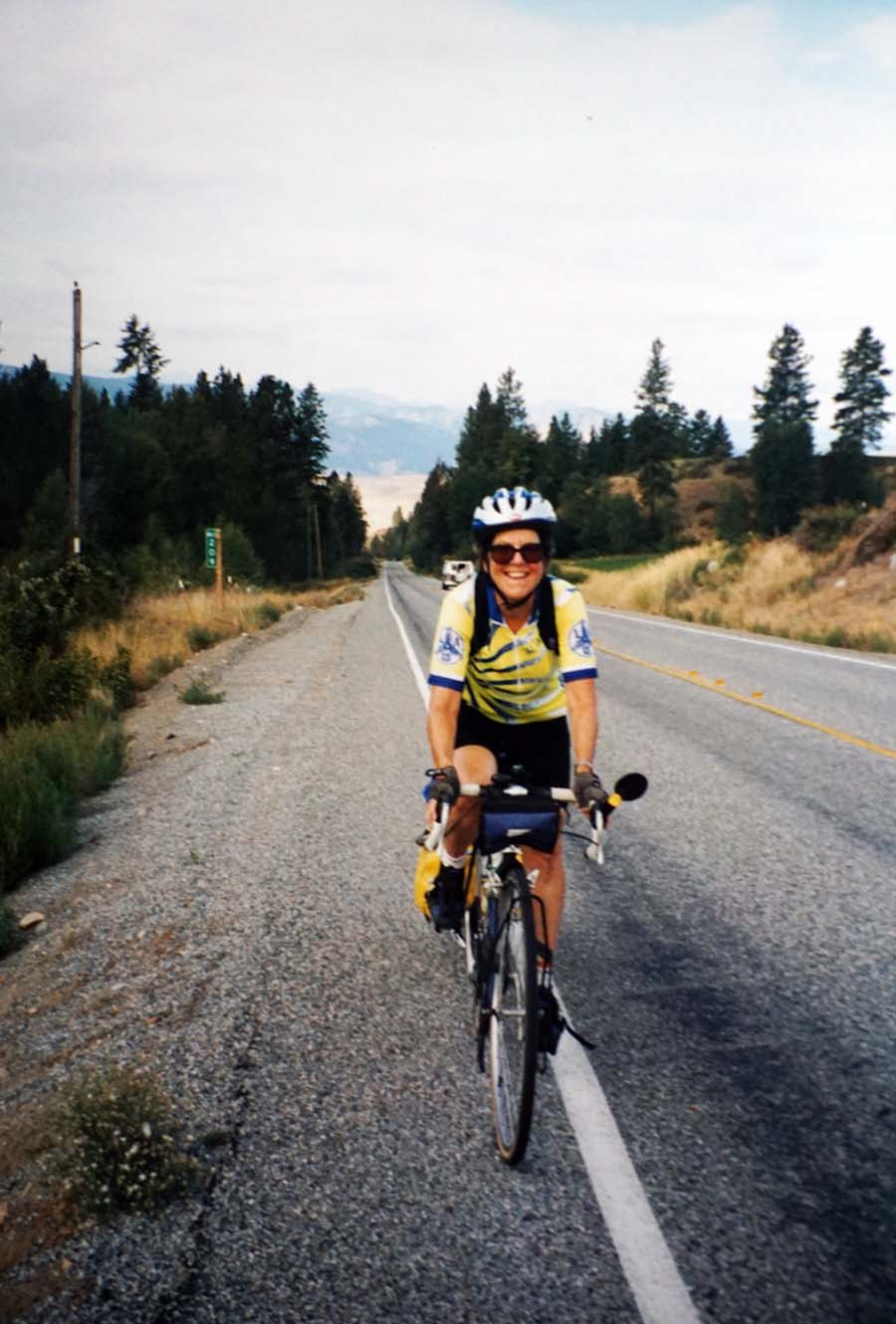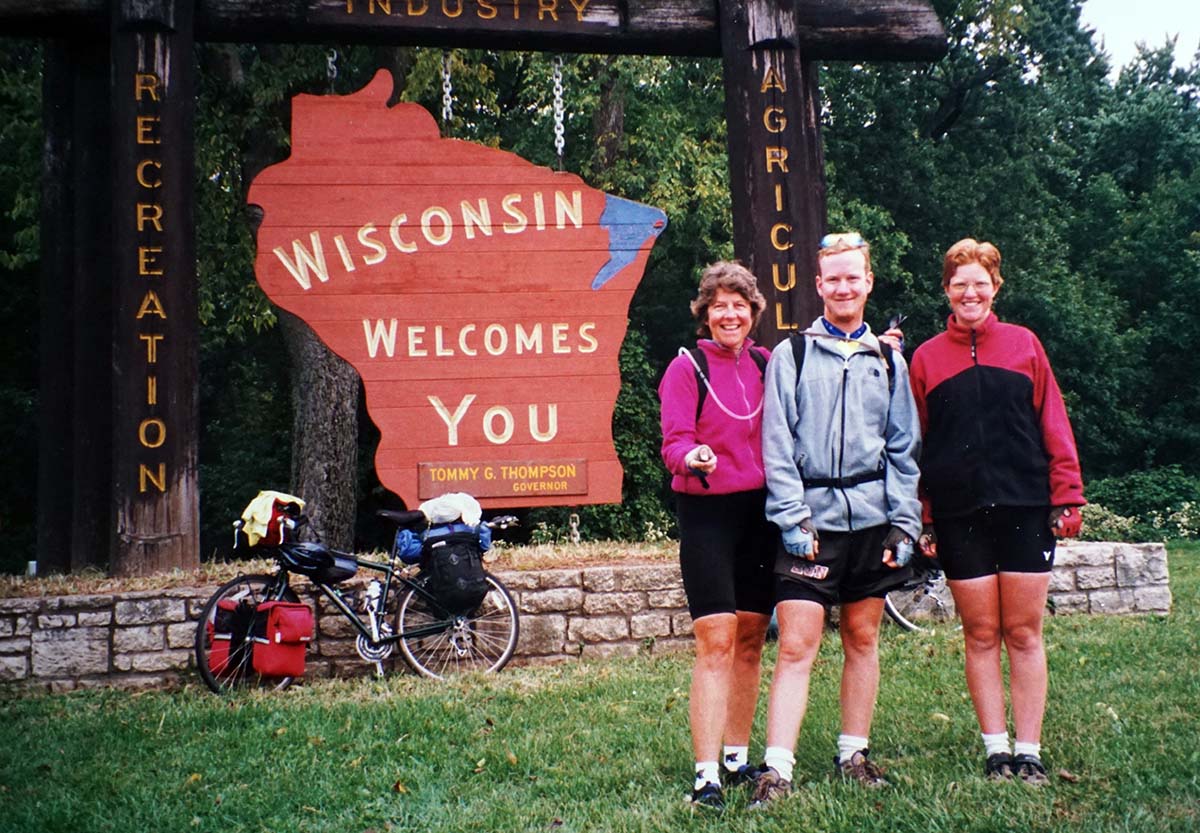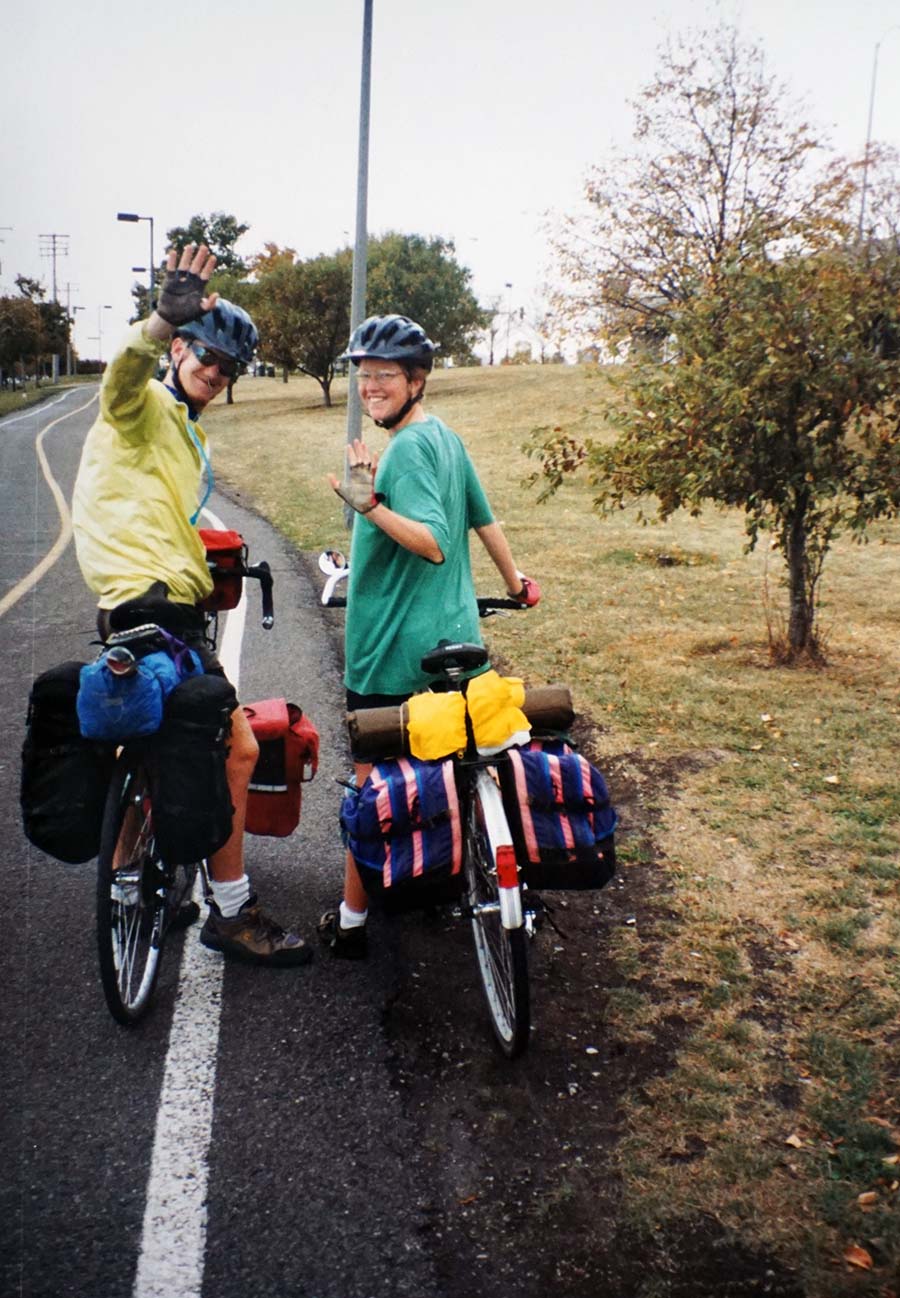Navigating the Journeys
My aunt, who is 81, has progressive supranuclear palsy, a rare, incurable brain condition that eats away at language, balance, fine motor skills, and eventually everything. Many people care for her. I cycle to her assisted-living facility on a February morning across Cambridge city streets still icy from a winter storm. When I get there, she wants to go for a walk.
We have been on journeys before. At 58, my aunt bicycled across the country with my brother and me in the summer of 1999. We set out from Massachusetts on July 5, heading into the prevailing winds despite our aunt’s clear advice to travel with the winds, west to east.
We rode about 55 miles a day and camped most nights. About once a week, we stayed in a motel with a phone line, so my aunt could post updates to her website. Early in the trip, my brother and I chose a cheap, stuffy room with an air conditioning unit whose ineffectiveness in cooling the air was exceeded only by its noise, an angry rattle that couldn’t quite drown out the train horns at the grade crossing an inch outside our window. Thereafter, my aunt gained veto power over our motel choices.

The Great Lakes looked so much like the Atlantic but lacked the smell of salt. We crossed the rail yard at Ashtabula, Ohio, where hundred-car trains brought coal from the Appalachian Mountains. In western Ohio, cracks opened in the dry dirt, and the bank thermometer read 104°F — but only in the direct sun, I told my father. In the shade it was cooler.
“But you are biking in the sun,” he pointed out.
In Indiana, we concluded the heat and the wind were too much. We decided to switch directions. But first we had to get to Chicago, through the industrial cities of Gary, Whitefish, and East Chicago. In each, residents greeted us with kindness and warned us of the dangers of the other two cities. On August 5, we flew out of O’Hare.

Leaving Anacortes, Washington, we traveled up into the Cascade Mountains. Beyond the first pass, the damp green forest gave way unexpectedly to desert. In the Rockies, we laughed about the ability of pikas, small rodent-like mammals, to store a hay bale’s worth of grass in their dens. We emerged into the rolling, flattening hills of the Great Plains, where the railroad magnate James Hill once claimed his iron railroad tracks would bring rain.
The prevailing winds swept us 92 miles to Lakota, North Dakota, in the single longest day of our trip. Slowly, the land dropped beneath us, into the lakes region of Minnesota. From Chicago, in late September, my aunt returned to San Francisco. Eighteen days later, my brother and I reached the Atlantic Ocean in New Jersey.

Other of her journeys I have witnessed from a much greater distance. When she was 41, my aunt sailed with her partner from Seattle to New Zealand. Somehow, via friends in Alaska and Chicago, they relayed messages to my mother consisting of little more than sets of coordinates. The pennies we placed on a map in our dining room circled gingerly around the North Pacific High.

My aunt believed in local knowledge, a concept grounded in the superiority of information gained from people over written sources. It required talking to strangers, a skill at which my aunt excelled. She says very little now.
This February morning, the conditions are unsuitable for walking outside with an older person with extravagantly terrible balance. Her wonderful aide, Juliet, helps her into her winter coat. My aunt stares fixedly at my heavy biking gloves until I help her put them on. She grips her wheeled walker and we set out. Her conversations these days are as limited as pennies on a map, but on this journey we navigate the slushy crosswalks shoulder to shoulder, together.

